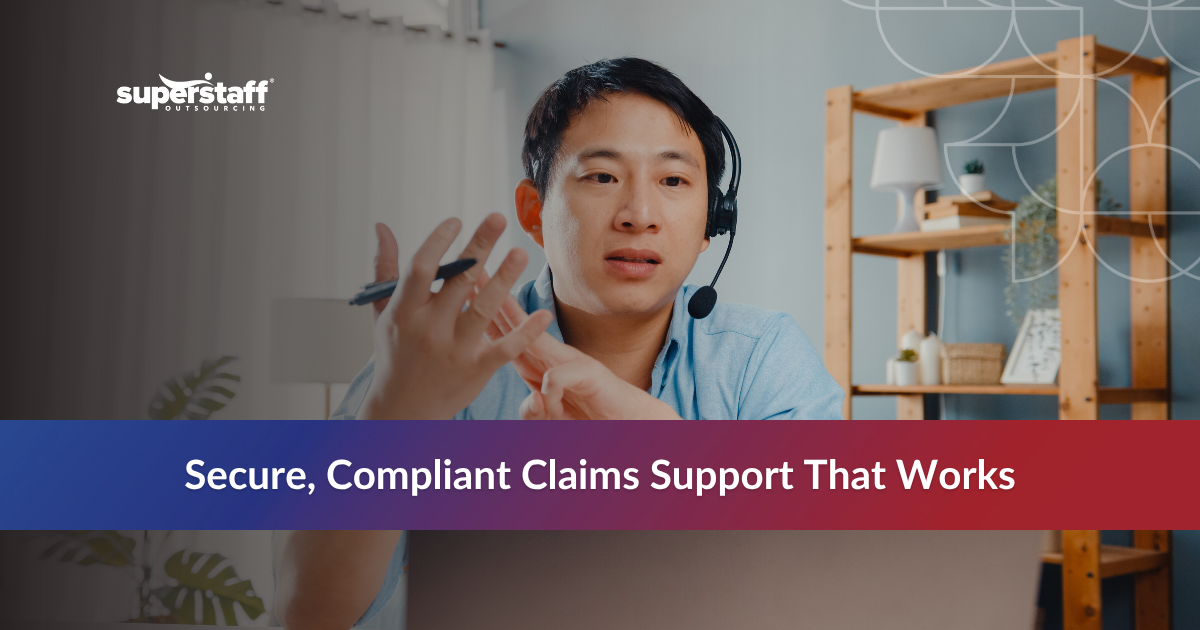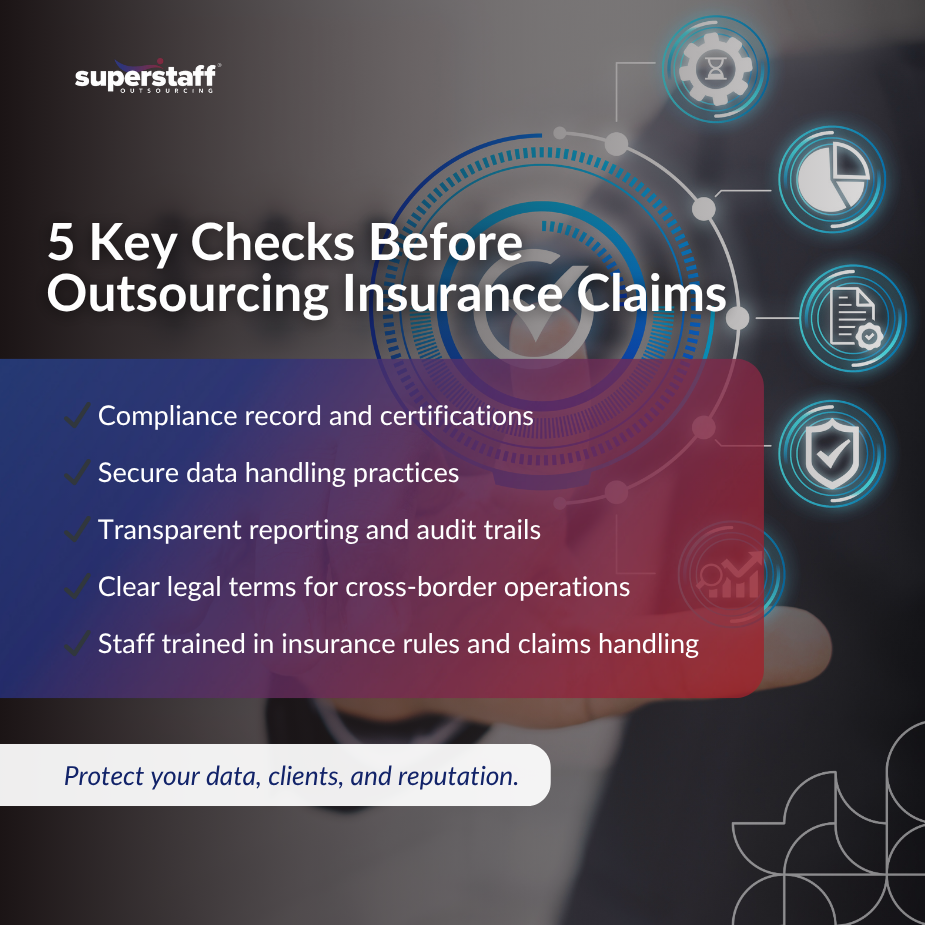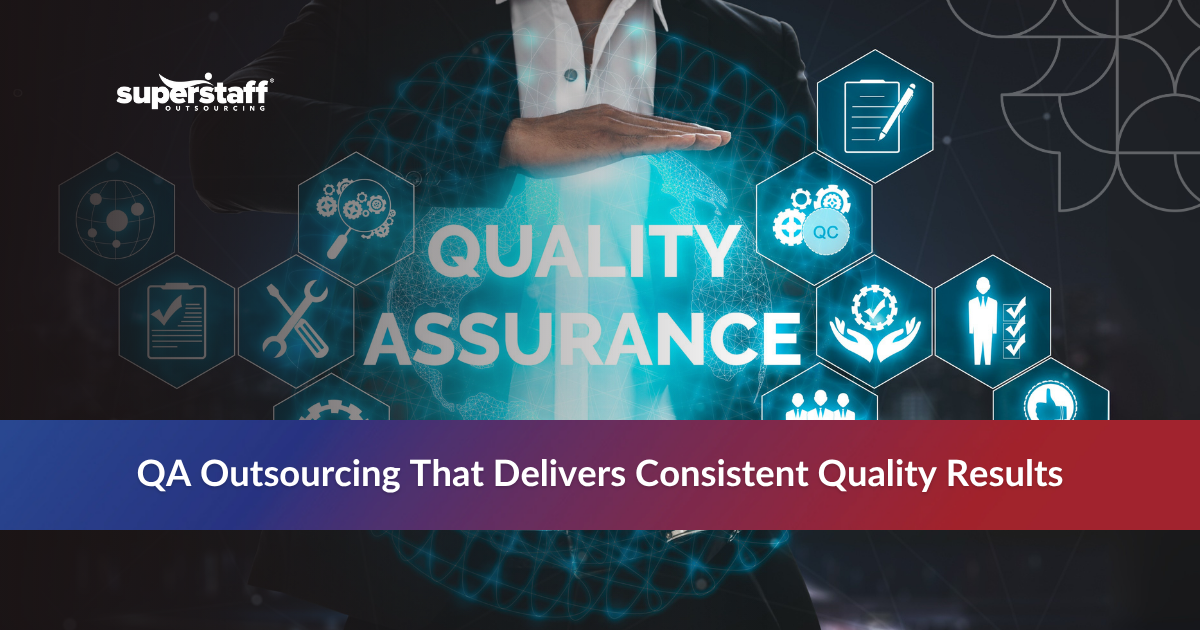
Insurance claims outsourcing can help you cut costs, speed up turnaround times, and free up your internal teams to focus on higher-value tasks. But without the right partner, this smart move can quickly backfire.
Think missed deadlines, compliance issues, data breaches, and frustrated policyholders—all caused by poor outsourcing choices.
To get the benefits without the setbacks, you need more than just a low quote. You need a partner who knows the rules, values security, and can deliver consistently.
Here’s a practical checklist based on real-world missteps to help you choose the right provider and avoid costly mistakes in your insurance claims outsourcing strategy.
Why Careful Vetting Matters in Insurance Claims Outsourcing
Choosing the right partner for insurance claims outsourcing is more than just a cost decision. It’s a matter of protecting your customers, your data, and your company’s reputation.
1. Check Their Compliance Record
Insurance is a tightly regulated industry. Any outsourcing partner must follow the same rules you do.
- Confirm the vendor understands state, federal, and international regulations.
- Look for experience with compliance medical claims processing if health data is involved.
- Ask for past audit results, licenses, or certifications to verify their track record.
2. Review Data Security Systems
Claims processing involves sensitive personal and financial data. A breach could result in legal action or loss of client trust.
- Ask about data encryption, access control, and disaster recovery plans.
- Review their incident response protocols in case of a breach.
- Ensure they store and transmit data securely and follow insurance-specific standards.
3. Confirm Transparency in Operations
You need clear visibility into how claims are being processed.
- Make sure you’ll receive access to reporting dashboards and status tracking.
- Check that they can produce audit trails for every claim.
- Request sample reports and regular performance summaries.
4. Understand the Legal Structure
When outsourcing across borders, legal risks increase.
- Clarify which country’s laws apply if there’s a dispute.
- Include indemnity and liability clauses in your contract.
- Ensure legal terms support your ability to enforce data security and service standards.
5. Evaluate Staff Training and Claims Knowledge
The quality of the staff handling your claims affects both accuracy and compliance.
The insurance BPO sector—particularly in the Philippines—has emphasized digital literacy, data analytics, and cybersecurity in staff training to offset skill gaps and serve specialized claims roles
- Ask how employees are trained on insurance rules and claim types.
- Confirm regular retraining is part of their process.
- Look for insurance BPO services with staff experienced in your industry.

Operational Checks Beyond Compliance
Even if a vendor meets legal requirements, there are other checks that impact day-to-day performance and long-term outcomes in insurance claims outsourcing.
1. Business Continuity Planning
Delays in claims can lead to policyholder dissatisfaction or service disruptions.
- Review the vendor’s backup systems, remote work policies, and response to outages.
- Ask how they handle cyberattacks, power failures, or natural disasters.
- Confirm their downtime plan still meets turnaround expectations.
2. Quality Control and Error Monitoring
Fast claims processing means nothing if it leads to mistakes.
- Review how the vendor checks for errors during claims entry and resolution.
- Look for quality assurance procedures, peer reviews, or escalation steps.
- Check how often performance is reviewed and adjusted.
3. Staff Turnover and Retention
High staff turnover can affect the quality and consistency of claims handling.
- Ask about average tenure and reasons for attrition.
- Ensure they provide benefits and training to support employee retention.
- Choose partners with a stable team to avoid constant retraining.
4. Claims Channel Coverage
Modern insurers use multiple platforms for customer service and claims support.
- Ask whether the vendor can manage email, phone, chat, and web-based claims.
- Check for integration options with your own internal systems.
- Make sure the partner supports the channels your policyholders use most.
Warning Signs to Watch For in Insurance Claims Outsourcing
Not all providers are ready to meet the expectations of insurance claims outsourcing. Here are signs that a vendor may not be the right fit.
1. Limited Industry Experience
General BPO experience isn’t enough. Look for providers who focus on insurance BPO services and have deep knowledge of claims handling.
2. Unclear Onboarding or Process Setup
If a vendor can’t clearly explain how they’ll transition your claims processes, it may mean their setup is rushed or incomplete.
3. Missing Audit Trails or Tracking Tools
If you can’t verify how claims are handled or access claim histories easily, that’s a serious problem.
4. Overselling Without Substance
Be cautious of companies that focus only on low costs or fast processing but offer little proof of compliance or quality assurance.
5. Lack of Response or Slow Communication
Delays in vendor communication during the selection phase may reflect future issues with responsiveness and accountability.
Key Questions to Ask Vendors
These direct questions can help you assess whether a vendor is ready for your insurance claims outsourcing needs:
- How do you train your staff on insurance regulations and policy differences?
- What certifications or audits support your compliance claims?
- How do you handle data breaches or service interruptions?
- Can you provide performance reports on current or past clients?
- What steps do you take to ensure claims are processed accurately and on time?
Getting clear answers to these questions is essential. If a provider can’t give you straight, detailed responses, it may be time to look elsewhere.
Final Checks Before You Sign the Contract
Before agreeing to work with any vendor, confirm the following:
- They have experience in insurance claims outsourcing with businesses similar to yours.
- Their systems support transparency, real-time tracking, and full documentation.
- Their team is trained, certified, and monitored for performance.
- Their security policies match industry expectations and compliance needs.
- They meet service-level standards not only for speed but also for accuracy and compliance.
These checks are not optional. Each one supports the quality and safety of your outsourced operations.






